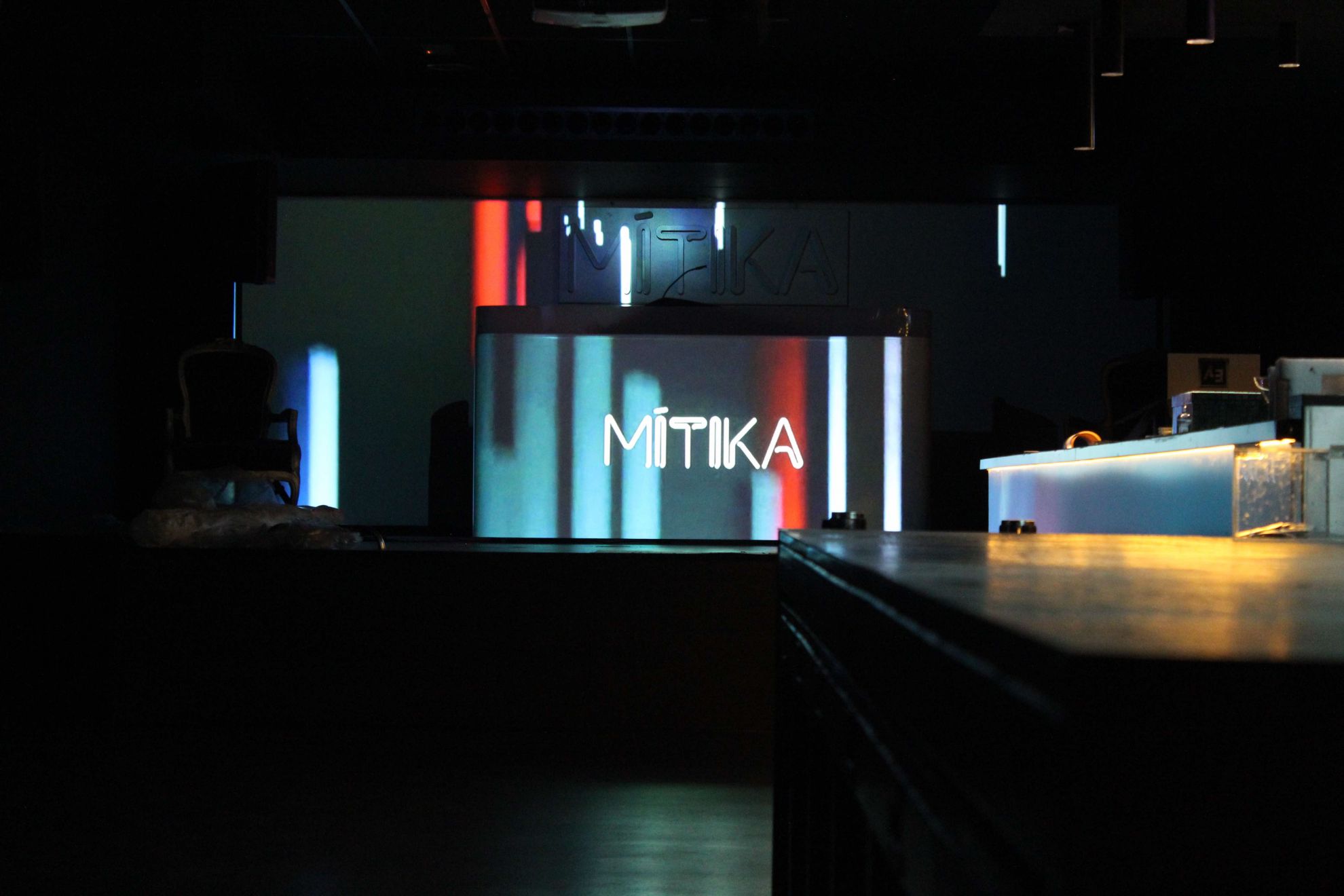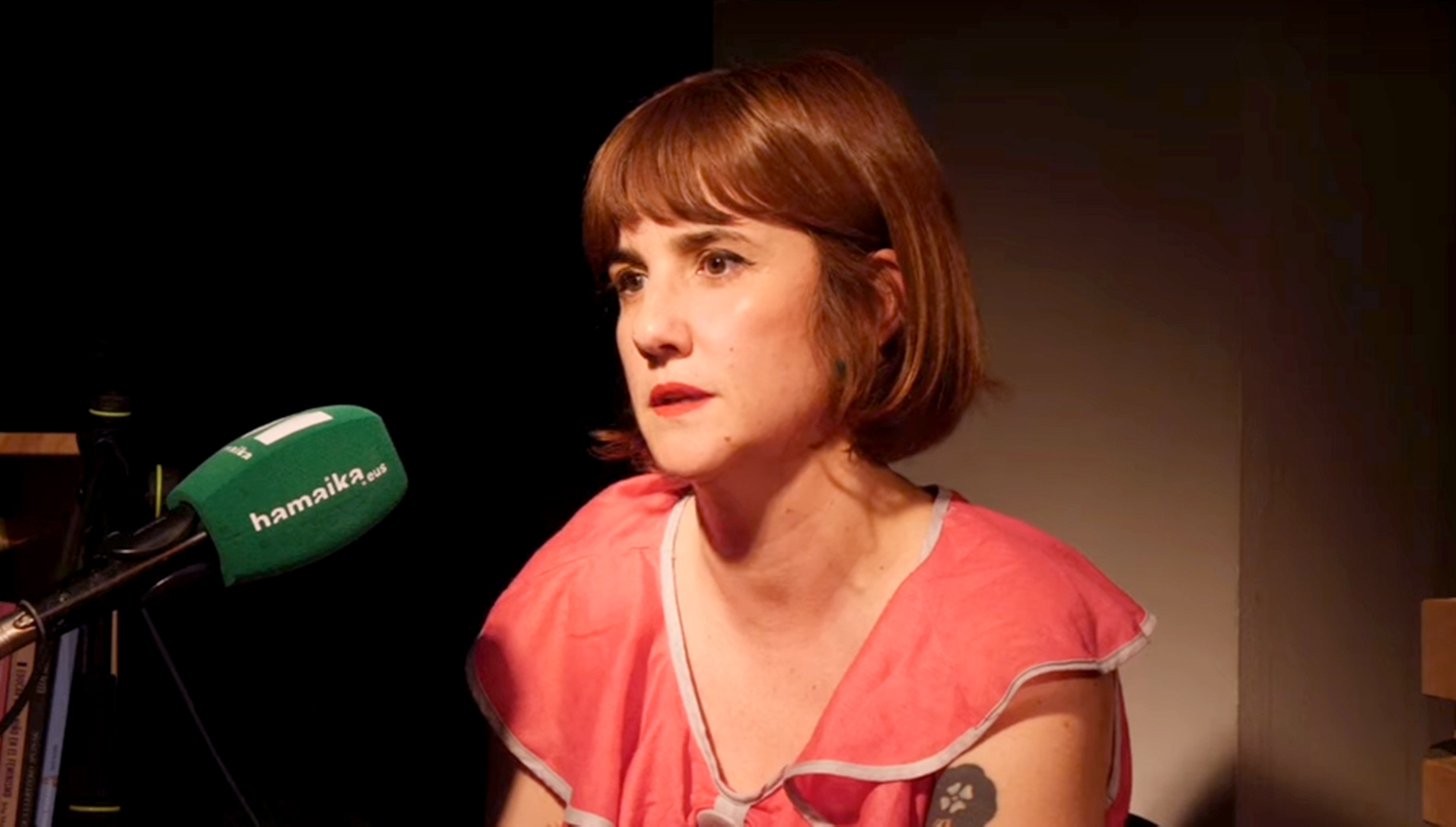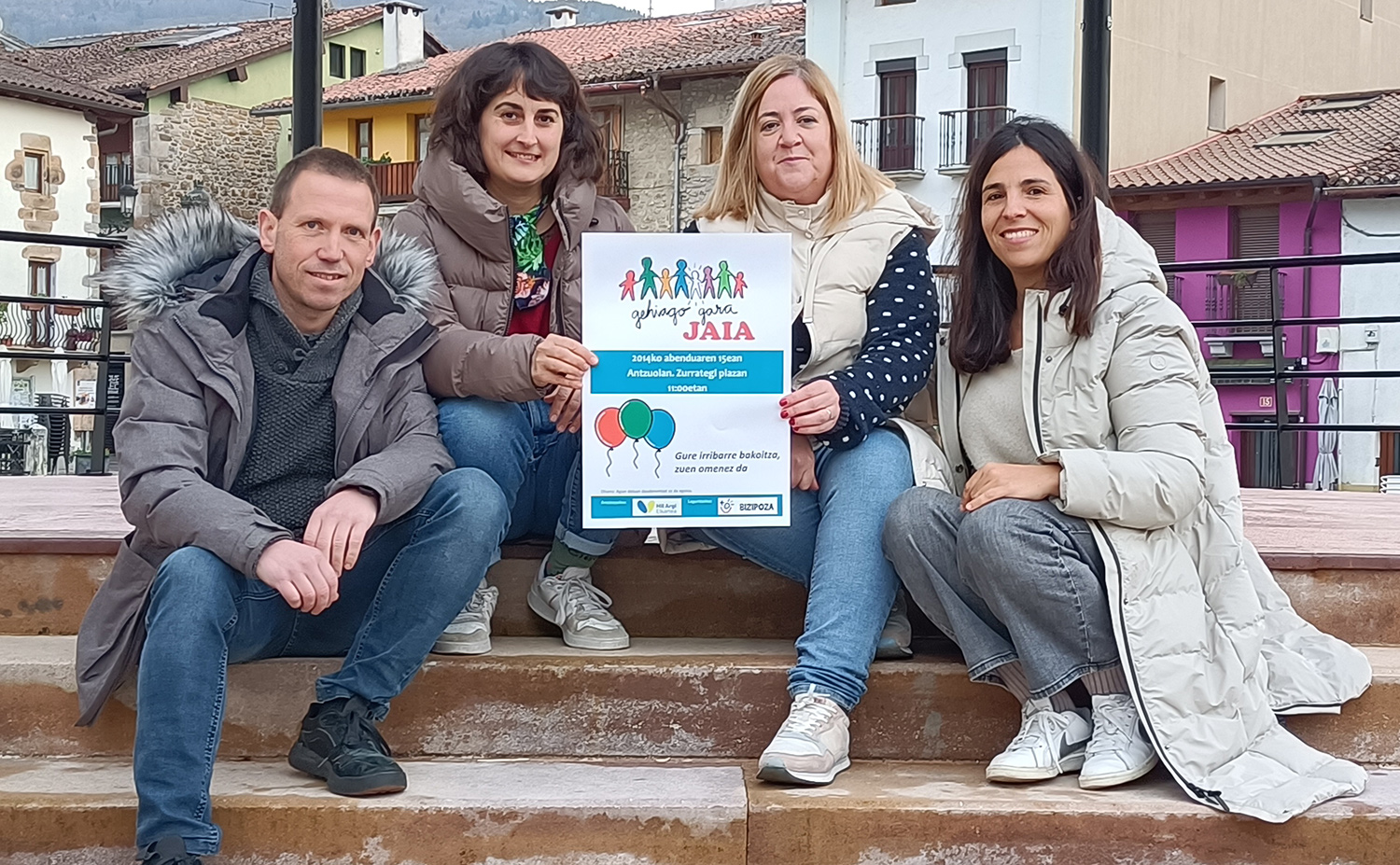A place they were for
- In Hernani they will open a space to visualize and recognize the mourning of children who die before or after birth. It will be the second in Euskal Herria. Perinatal death, driven by Esti Zeberio Zubelzu, lived on her skin, explains what families need to pass the pain.

Perinatal death occurs between week 22 of pregnancy and during the first seven days of life, as defined by the World Health Organization. The pain experienced during those weeks or earlier is called perinatal or gestational grief.
Both have lived on their skin by Hernaniarra Esti Zeberio Zubelzu. On 27 January 2017, his oldest son, Marco, died the same day as his birth. Everything he experienced after the events that had come “unexpectedly” prompted reflection and anger. It mentions, among other issues, the lack of hospital protocols and social and legal disrecognition for grief. After advancing his own grieving process and after a few years, he decided to write to the City Hall of Hernani to adapt in his cemetery a space dedicated to perinatal mourning.
In summary, they guided the implementation of the design of the space that will be inaugurated a year ago. The long story we will explain later. Now we will delve into the importance of giving visibility to the perinatal mourning.
Your parents have dreamed of a hopeful future, have named the child ... But all of a sudden, this process is interrupted by death and grief is hidden
Tabú
“Perinatal grief has a peculiarity, an overload that most duels do not have: it is tobacco.” Esti Zeberio Zubelzu speaks clearly. In his view, the tendency to hide these deaths is a long process that still does not match reality. “Society has seen you pregnant and lived with you normally. But the child has died and has not known that child, so that natural recognition has not been stimulated.” The experience of parents is very different. When perinatal death occurs, parents give birth, can see, touch and say goodbye. Before they have dreamed of an illusory future, they have named the child ... But all of a sudden, this process is interrupted by death and grief hides. Newborn children are not given the same status as other people, which is a major constraint in the hard process that their family members must follow.
The habit of keeping silent while waiting for a child to pass the first trimester of pregnancy is widespread. In the words of Zeberio, this clearly means to what extent the taboo is perinatal death. “We’ve been stuck in our heads over and over again that after the first twelve weeks we can count on being pregnant, it’s convenient to wait in case. Why? If something happens because we have to take it in secret? Because once this first quarter is over, nothing can be produced?”
Hernaniarra believes that the grieving processes are personal, that each one will have to break their time and form, but points out that in all cases the same basis is necessary: “Parents need respect, recognition of what the child existed, to be able to say normally the name of their daughter or son.” It does not require special treatment, “only the right to the same attitude towards any death.”
Hard experiences
Death is not easy for anyone. Deaths without confession or clarification often cause more pain. Children who die before or after childbirth have no public or illegal recognition.
Parents have no decision-making power over children who do not reach the 24th week of pregnancy. They can't store the body or their memories, they can't decide what to do with the body. In addition, those who lived less than 24 hours cannot be legally recorded in the family book. In this case, no matter the week of pregnancy, this condition is that the child has 24 hours of life. “Most children born in this situation do not exist, for anyone, even if they have been among us,” Zeberio said.
Marco, son of Esti Zeberio Zubelzu, barely reached the age of 24 weeks. “Our little one was born and died on January 27, 2017. I gave birth to the child, it was a normal birth, with dilatation, with expulsion… but I knew that Marco would have no life, even if he was alive”. Parents did not have the opportunity to decide what they wanted to do with their child. They let them know, see and greet the child and took him. The mother tells us that they were not told where they were going or what they were going to do with it, “neither at that time nor later.”
He criticizes the hospitals' lack of protocol. He gave birth at Donostia Hospital and did not receive any kind of psychological help or information. Even the day after delivery, she was discharged with postpartum dilations and jaws. Milk was donated and sent home without a gynecological study or a midwife follow-up.
Not only that, but many are often heard in the hospital. He, in particular, had to listen to “calm, you will have more children” in the room where he was. “And? Can you imagine if we said that to someone who has lost his father or someone who has lost his husband?”
He also made another comparison. He could not give his son the greeting he wanted, place himself in a certain place or collect his ashes. However, those who remove the meniscus after an operation are allowed to take him home in a container. Comparison is as incomprehensible as it is painful.
Children who die before or after childbirth have no public or legal recognition
Concrete demands
Esti Zeberio Zubelzu is clear about what is needed to help families who, both socially and institutionally, have to mourn hard: “Be able to decide what to do with our newly deceased son and decide where and how we want to greet.” He has demanded protocols of action in hospitals in these situations. Psychological support, not putting parents in the same classroom as those who give birth to children who are going to be born healthy, that relatives can see and greet the child, and that elements are collected that can help in the grieving process (photos, a piece of hair, ashes...), among others.
According to the law, it claims the right of all parents to decide what to do with their children. It asks that the 24-week limit be entered in the family book. And in society, “you’ll have another one,” “you should be OK now, forget it,” “at least it hasn’t happened to you when the child was 2 or 3 years old,” he said.
A txoko at the Hernani cemetery
As already mentioned, Esti Zeberio started from his personal experience in the struggle to give a place to perinatal deaths in the Hernani cemetery. The “struggle” itself was not tough. As soon as he made the proposal, he received the disposition and interest for the work of the City Hall. In the years after Marco's death, Zeberio met during the mourning some of these statewide spaces. There were few, four or five, and most were in Catalonia. The City Council of Bilbao also read the refurbishment of a space in the cemetery of Derio, opened on 1 November 2021. He asked the Hernani City Hall to create an area of this kind in the town. He clarifies that they have worked fully together. Marcos's parents, based on their experiences, explained how space should be and what needs it should cover. The Hernani City Hall commissioned the artist Sahatsa Jauregi to design it, which has given it the form of “the warmest, the most sensitive”.
Hernani will be the second place dedicated to perinatal mourning in the Basque Country. His name is “because they were,” “in memory of those who existed.” It is very close to the entrance to the cemetery and presents different elements. On the one hand, a star fence envelops the area. Because the star is the symbol of perinatal death. Anyone approaching the cemetery may write the name of their child at the time and without any request. “In intimacy or with whoever you want. It shall have a space for the child who has not been able to bury or bury. A location space. A place for recognition. A space to visit or greet. It will be a space for the child who had to leave in the hospital,” explains Esti Zeberio. On the ground there will be another star with a central underground tube. It is designed so that family and friends can enter letters or texts or bury whatever they want.
Zeberio highlights the dual objective of the new space: “Make the perinatal mourning visible and provide a space for parents who need it.” In any case, he has made it clear that the real claim is “not to need such spaces”.
.jpg)
Soco Lizarraga mediku eta Nafarroako Duintasunez Hiltzeko Eskubidea elkarteko kidearen ustez bizi testamentuak heriotza duin bat eskaini eta familiari gauzak errazten dizkio.
Gertakariak igande egunsentian suertatu dira 5:00ak aldera Gasteizeko Mitika diskotekan. Hildako pertsona 31 urteko gizon bat da, eta lurraren kontra buruarekin hartutako kolpe baten ondorioz hil da, antza atezainak kolpe bat eman ostean.
These were my last words when we left, held hand in your deep breathing sleep. Your heart stayed forever without a special, simple, dignified pain. As you want and demand. How we want and respect.
Already a month before the arrival of winter, the last days of the longest night,... [+]
First of all, we wish to extend our condolences to the family and friends of the woman killed in early August.
The people of Gaintxurizketa are fed up with the disillusionment of the administration and those responsible.
Those of us who live in the neighborhood are forced to... [+]
Paris 1845. The Labortan economist and politician Frédéric Bastiat (1801-1850) wrote the satire Pétition des fabricants de chandelles (The Request of the Sailing). Fiercely opposed to protectionism, he ironistically stated that the sailing boats asked for protection against... [+]










.jpg)








